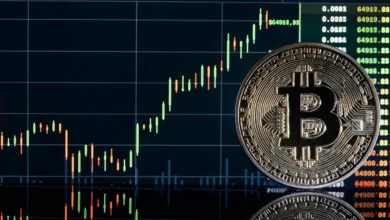
Belarusian President Alexander Lukashenko has publicly endorsed cryptocurrency mining as a viable alternative to traditional financial systems dominated by the United States dollar. This declaration marks a significant shift in how smaller nations are viewing digital currencies and blockchain technology as tools for economic independence and financial sovereignty. As global tensions continue to reshape international trade and monetary policy, Lukashenko’s stance represents more than just a policy preference—it signals a potential paradigm shift in how countries approach monetary autonomy in an increasingly digitized world.
The statement comes at a time when many nations are exploring alternatives to dollar-based transactions, particularly those facing economic sanctions or seeking greater control over their financial destinies. Belarus, having experienced its own share of international pressure and economic restrictions, appears to be positioning itself at the forefront of a cryptocurrency revolution that could fundamentally alter the landscape of global finance. This comprehensive exploration examines the implications of Lukashenko’s support for cryptocurrency mining, the potential impact on international monetary systems, and what this means for the future of digital assets in geopolitical contexts.
Lukashenko’s Vision for Cryptocurrency Adoption
President Lukashenko’s embrace of cryptocurrency mining didn’t emerge in a vacuum. Belarus has been gradually developing its digital infrastructure and regulatory framework to accommodate blockchain technology and digital asset operations. The president’s recent comments reflect a deeper understanding of how cryptocurrencies can serve as more than just speculative investments—they represent a fundamental reimagining of monetary sovereignty and economic independence.
The Belarusian leader has articulated his vision by emphasizing that cryptocurrency mining operations could provide his nation with an alternative revenue stream while simultaneously reducing dependence on traditional banking systems controlled by Western powers. This perspective resonates with a growing number of countries that view the US dollar’s dominance in international trade as a vulnerability rather than a convenience. By championing digital currencies, Lukashenko is essentially advocating for a decentralized financial system that operates beyond the reach of any single nation’s monetary policy or sanctions regime.
What makes this position particularly noteworthy is the timing. As global financial systems grapple with inflation, currency devaluation, and geopolitical instability, the appeal of decentralized digital assets has grown exponentially. Lukashenko appears to recognize that countries willing to embrace this technology early may gain significant strategic advantages in the evolving global economy. His support extends beyond mere rhetoric, as Belarus has already implemented favorable regulatory conditions for cryptocurrency operations, including tax incentives and legal protections for digital asset businesses.
The Geopolitical Context Behind the Crypto Push
The geopolitical landscape provides essential context for understanding why Belarus is turning toward cryptocurrency solutions. Following disputed elections and subsequent political unrest, the country has faced increased isolation from Western nations, including targeted economic sanctions. These pressures have created both necessity and opportunity for alternative financial mechanisms that operate independently of traditional banking channels.
Lukashenko’s cryptocurrency advocacy should be viewed through this lens of economic resilience and strategic positioning. By developing robust digital currency infrastructure, Belarus aims to create pathways for international commerce that bypass conventional financial institutions potentially subject to foreign influence or restriction. This strategy mirrors efforts by other nations seeking to reduce their exposure to dollar-denominated transactions and the associated political leverage that comes with them.
Furthermore, the president’s statements reflect a broader trend among nations exploring central bank digital currencies and cryptocurrency frameworks as hedges against financial system vulnerabilities. Countries ranging from Russia to China have pursued similar strategies, recognizing that control over monetary systems represents a crucial element of national sovereignty in the twenty-first century. Belarus, though smaller in scale, is attempting to position itself as a regional hub for cryptocurrency mining and blockchain innovation, potentially attracting investment and technical expertise from around the world.
How Cryptocurrency Mining Could Challenge Dollar Dominance
The notion that cryptocurrency mining could replace or significantly challenge the US dollar’s global reserve status represents an ambitious but increasingly plausible scenario. The dollar has maintained its dominance through a combination of economic scale, military backing, institutional inertia, and the petrodollar system. However, digital currencies offer characteristics that could erode these advantages over time.
Cryptocurrency networks operate on decentralized protocols that don’t require central bank oversight or government approval for transactions. This fundamental characteristic means that countries can conduct international trade using digital assets without routing payments through dollar-based correspondent banking systems. For nations like Belarus facing external economic pressures, this represents a potentially transformative capability. Bitcoin mining and other proof-of-work cryptocurrencies essentially allow countries to “mint” their own value through computational resources rather than relying on foreign exchange reserves or credit arrangements with international institutions.
Moreover, cryptocurrencies offer transparency and immutability through blockchain technology, which can reduce transaction costs and increase efficiency in cross-border payments. These technical advantages, combined with the political neutrality of decentralized networks, make digital currencies attractive alternatives for international settlement. While completely displacing the dollar would require massive shifts in global financial architecture, Lukashenko’s vision suggests that even partial adoption of cryptocurrency systems could significantly alter power dynamics in international finance.
The mining aspect is particularly crucial because it represents actual value creation through computational work rather than fiat currency creation through monetary policy. Countries with access to cheap energy and technical infrastructure can participate in cryptocurrency networks regardless of their standing in traditional financial systems, potentially leveling the playing field for smaller nations seeking economic influence.
Belarus as a Cryptocurrency Mining Destination
Belarus has been actively positioning itself as an attractive destination for cryptocurrency mining operations through strategic policy initiatives. The country offers several competitive advantages that align with Lukashenko’s vision of becoming a regional cryptocurrency hub. These include relatively inexpensive electricity, a developing technical workforce, and a regulatory environment that has been crafted to welcome digital asset businesses.
In 2017, Belarus passed landmark legislation creating a favorable legal framework for cryptocurrency and blockchain companies operating within designated technology parks. This decree provided tax exemptions and legal clarity for digital currency operations, making the country one of the more progressive jurisdictions in Eastern Europe regarding blockchain technology. President Lukashenko’s recent statements suggest an intention to expand and deepen these initiatives, potentially making cryptocurrency mining a cornerstone of national economic strategy.
The infrastructure requirements for large-scale mining operations align well with Belarus’s existing capabilities. The country has substantial energy generation capacity and relatively low electricity costs compared to Western European nations, making it economically viable for energy-intensive mining activities. Additionally, the government’s willingness to provide regulatory certainty addresses one of the primary concerns that cryptocurrency businesses face when selecting operational locations.
However, challenges remain. International mining companies must weigh the technical and economic advantages against geopolitical considerations, including potential complications from Belarus’s international relationships and sanction regimes. Nevertheless, Lukashenko’s vocal support for the industry signals that cryptocurrency development will likely receive continued government backing and resources, potentially offsetting some of these concerns for investors willing to navigate the complex political landscape.
The Broader Implications for Global Financial Systems
President Lukashenko’s endorsement of cryptocurrency mining as a dollar alternative carries implications that extend far beyond Belarus’s borders. His statements contribute to a growing international conversation about monetary sovereignty, financial technology, and the future architecture of global economic systems. As more countries explore similar strategies, the cumulative effect could gradually reshape how international trade and finance operate.
The traditional financial system, built around reserve currencies and centralized banking institutions, has provided stability but also concentrated significant power in the hands of a few nations and organizations. Blockchain technology and cryptocurrencies offer an alternative model where financial infrastructure exists as a public utility rather than under centralized control. If this vision gains traction among a critical mass of nations, it could lead to a more multipolar financial system where no single currency maintains overwhelming dominance.
For developing and mid-sized economies, this represents both opportunity and risk. The opportunity lies in accessing global financial networks without requiring approval from or dependence on major economic powers. The risk involves the volatility and technical complexity of cryptocurrency systems, which can create their own vulnerabilities and challenges. Lukashenko’s approach suggests a belief that these risks are worth taking given the potential rewards of greater economic autonomy.
The impact on major reserve currency nations, particularly the United States, could be substantial if this trend accelerates. Dollar dominance has provided significant advantages, including the ability to run persistent trade deficits and exert economic pressure through sanctions. A meaningful shift toward cryptocurrency-based international transactions could diminish these advantages, forcing a recalibration of geopolitical strategies and economic policies.
Technical and Economic Feasibility of the Cryptocurrency Alternative
While Lukashenko’s vision is ambitious, examining the technical and economic feasibility of cryptocurrency serving as a true dollar alternative reveals both promise and practical limitations. Current cryptocurrency networks, while innovative, still face scalability challenges, energy consumption concerns, and regulatory uncertainties that complicate their adoption for mainstream international commerce.
Bitcoin, the most established cryptocurrency, can process only a limited number of transactions per second compared to traditional payment networks. This throughput limitation, while being addressed through layer-two solutions like the Lightning Network, remains a significant barrier to wholesale adoption for global trade settlement. Other cryptocurrencies offer different technical trade-offs, but none have yet achieved the combination of security, decentralization, and scalability necessary to fully replace established monetary systems.
Energy consumption represents another critical consideration. Proof-of-work mining, which secures networks like Bitcoin, requires substantial electrical power. While this aligns with Lukashenko’s strategy of leveraging Belarus’s energy infrastructure, it raises questions about environmental sustainability and long-term viability. Some cryptocurrencies have moved to more energy-efficient consensus mechanisms, but these often involve trade-offs regarding decentralization and security.
Despite these challenges, the economic incentives for cryptocurrency adoption are strengthening. Transaction costs for international payments using traditional banking systems can be substantial, particularly for smaller transactions or payments to jurisdictions with less developed financial infrastructure. Digital currencies can potentially reduce these costs while increasing transaction speed. Additionally, the programmatic nature of cryptocurrency systems enables automation and smart contract functionality that traditional financial systems struggle to replicate.
Regulatory Challenges and International Response
The path toward cryptocurrency adoption as a dollar alternative faces significant regulatory obstacles. International financial regulations, anti-money laundering requirements, and sanctions enforcement mechanisms are all built around traditional banking systems. Shifting toward cryptocurrency-based transactions would require substantial regulatory adaptation both domestically and internationally.
Lukashenko’s support for cryptocurrency mining places Belarus in potential tension with international regulatory efforts to bring digital assets under more stringent oversight. Major economies, including the United States and the European Union, are developing comprehensive cryptocurrency regulations that may not align with Belarus’s more permissive approach. This regulatory divergence could create complications for businesses attempting to operate across multiple jurisdictions.
The international response to Belarus’s cryptocurrency ambitions will likely depend on broader geopolitical considerations. Countries viewing Belarus as an ally or neutral party may welcome alternative financial mechanisms, while those in opposition may attempt to extend existing sanctions frameworks to cryptocurrency transactions. The pseudonymous nature of many digital currencies complicates enforcement of such measures, but government pressure on centralized exchanges and financial institutions can still limit cryptocurrency utility for sanctioned entities.
Looking forward, the regulatory landscape for digital assets will probably evolve toward greater standardization and oversight. The question becomes whether jurisdictions like Belarus can maintain competitive advantages through more favorable regulations or whether international pressure will force convergence toward stricter standards. Lukashenko’s bet appears to be that the technological capabilities and economic incentives of cryptocurrency systems will prove resilient enough to sustain alternative financial networks regardless of regulatory headwinds.
Conclusion
President Lukashenko’s endorsement of cryptocurrency mining as a potential replacement for US dollar dominance represents a significant statement about the evolving nature of international finance and monetary sovereignty. While the complete displacement of established reserve currencies remains a distant prospect, the underlying trends driving Belarus’s cryptocurrency strategy reflect real shifts in global economic dynamics. Countries seeking greater financial autonomy are increasingly viewing blockchain technology and digital assets as viable tools for achieving independence from traditional financial systems.
The success of this vision will depend on multiple factors including technological development, regulatory evolution, energy considerations, and the broader geopolitical environment. Belarus’s relatively small size means that its cryptocurrency initiatives alone cannot fundamentally reshape global finance, but as part of a larger international movement toward financial decentralization, the country’s efforts contribute to an important ongoing transformation.
For observers and participants in global financial markets, Lukashenko’s statements serve as a reminder that the monetary status quo faces challenges from multiple directions. Whether cryptocurrency ultimately fulfills its promise as a dollar alternative or serves as a complementary component of a more diverse international monetary system, the technology has already proven its ability to offer nations new options for managing their economic relationships and asserting their financial independence.
FAQs
Q: Why is Belarus specifically interested in cryptocurrency mining?
Belarus has several strategic advantages that make cryptocurrency mining attractive, including relatively low electricity costs, existing energy infrastructure, and government policies favorable to digital asset businesses. Additionally, economic sanctions and isolation from Western financial systems have created a strong incentive.
Q: Can cryptocurrency realistically replace the US dollar in international trade?
Complete replacement of the US dollar as the global reserve currency would require massive systemic changes that are unlikely in the near term. However, cryptocurrencies could gradually capture meaningful market share in international transactions, particularly for countries seeking alternatives to dollar-denominated trade.
Q: What are the main risks of Belarus’s cryptocurrency strategy?
The primary risks include regulatory uncertainty, potential international pushback through expanded sanctions, cryptocurrency market volatility affecting economic stability, and technical challenges with scaling blockchain networks for mainstream use.
Q: How does cryptocurrency mining create economic value?
Cryptocurrency mining creates value by securing blockchain networks through computational work. Miners invest in hardware and electricity to solve complex mathematical problems, and in return, they receive newly created cryptocurrency tokens as rewards.
Q: What impact could widespread cryptocurrency adoption have on global economic power dynamics?
Widespread cryptocurrency adoption could significantly redistribute economic power by reducing the advantages that come with controlling reserve currencies. Countries currently able to influence global finance through monetary policy and banking systems might find their leverage diminished as alternative financial networks gain prominence.









